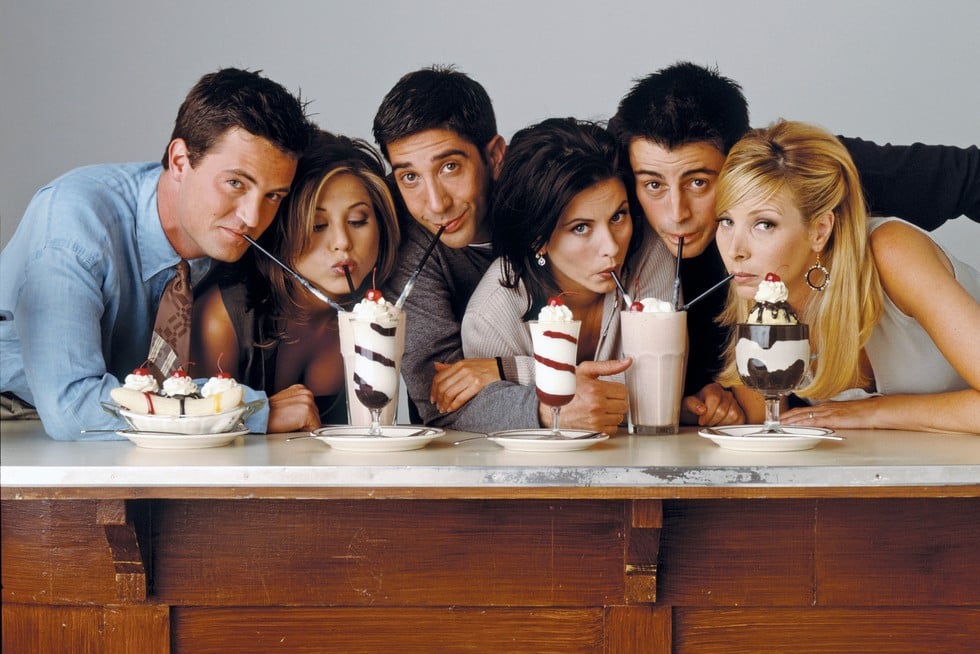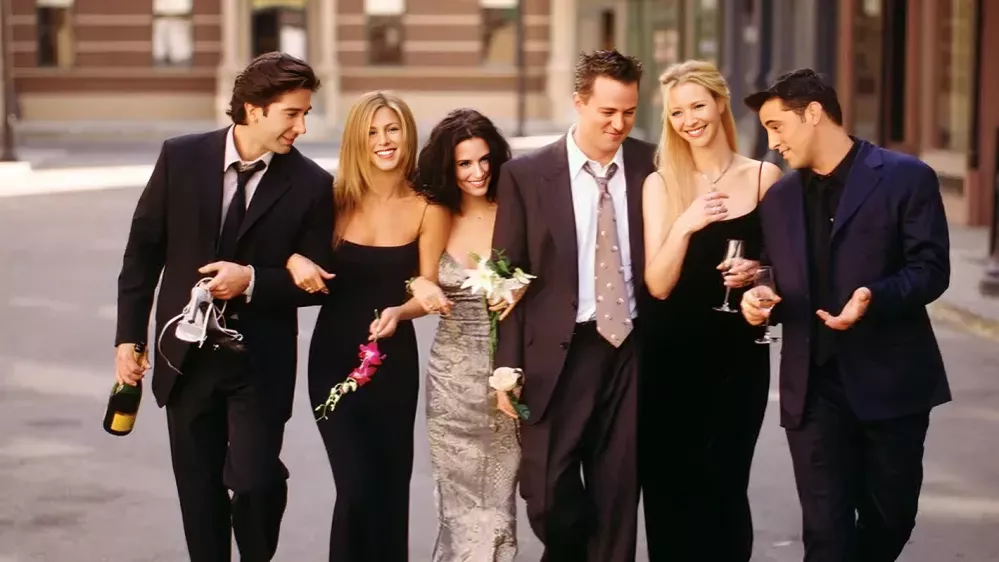Thirty years of 'Friends': Come for the laughs, stay for the heart
These six characters are still there for us three decades down the line
SLOUGH, ENGLAND:Thirty years ago in September 1994, runaway bride Rachel Green burst into Central Perk in a blind panic searching for shelter and the long-lost friend who would provide it. Joining the long-lost friend and her gang on the sofa that was always mysteriously available to them in a packed café, Rachel, Monica, Phoebe, Ross, Chandler, and Joey cast a spell in the form of Friends that would last ten seasons and stretch onto what is beginning to look like the end of time.
Ditzy Rachel, neurotic Monica, flaky Phoebe, nerdy Ross, charming Joey and funnyman Chandler: could the combination be any more potent? Just what was it about this sitcom that set it apart from the other forgotten names of the nineties? When looking for our fix of nostalgic humour, you would be hard-pressed to find a large mass of Millennials pining for Everybody Loves Raymond or flocking to The King of Queens. So what was it about Friends that turned it, effectively, immortal?
The winning formula

Perhaps it was their inexplicably exceeding good looks of them women that did the trick. Or perhaps it was how the core characters’ lives remained firmly intertwined, giving us not only a solid set of friendships but also an aspiring love story. Chandler and Monica – or Mondler, as they are fondly now known – grew together as a couple and prevailed through the challenges of infertility, property-buying and nasal ex-girlfriends. They proved that a grown-up relationship can survive not just the big guns but also the petty fights without either party ever needing to go on a break. Although now that the subject of breaks vis-à-vis relationships has inevitably come up, let me just get my unpopular opinion out of the way: yes, Ross was right, they were on a break, and yes, Rachel holds onto a grudge like it is super glue.
But Friends was about so much more than lessons in love and friendship. A sitcom may never strive to set out iconic teachable moments, but Friends cemented its place in television history by giving us an abundance of them. For a start, this cherished show taught us that when taking a sofa up the stairs, we must always hire movers. If we do not hire movers, we will be doomed to “PIVOT” around corners with helpers who seem to not know the dictionary definition of pivot. It taught us that when going on a break, it is always best to draw up a legal document outlining the terms and conditions of said break.
It also taught us that the route to parenthood doesn’t always have to be what you expect. Phoebe steps up to be a surrogate mother to her brother’s children and shows us how heart-wrenching it can be to give away those babies. Chandler and Monica find love in their hearts to become adoptive parents to twins after a gruelling infertility journey. Even Ross and Rachel find a way to bring up Emma without conforming to societal norms, although here I’m afraid there must have been an element of dark magic involved. As someone who has spent many years orbiting around babies and toddlers, the most unrealistic television moment I have ever witnessed was when Rachel announced, “I’m putting Emma down for a nap”, and emerged baby-free five seconds later. No one in parenting history has ever achieved this. But hey ho. We don’t go to sitcoms for realism!
Playing devil’s advocate

Not everyone shares my rosy and forgiving view of this show about six attractive people whose jobs allow them to spend all day in a coffee shop. When Netflix trotted out Friends in 2020 to dull the pain of a global pandemic, it wasn’t long before vultures descended on Ross Geller for his burning wish for Rachel to disembark from a Paris-bound aircraft.
“Ross is so problematic,” notes one fan in disgust on Reddit. “Rachel shouldn’t have got off the plane.”
“Problematic” is the label of choice for fictional characters who make questionable choices, and few have been shoved under a microscope harder than Ross. Modern viewers find him jealous, manipulative, controlling, immature, and an absent father to his first-born, Ben, and not particularly devoted towards his second-born, Emma, either.
But Friends was not the first sitcom featuring problematic people. Seinfeld did it a few years before Friends, featuring four core characters who made some very questionable choices. No one in Seinfeld has ever been crucified like Ross – although perhaps that is because in Seinfeld, the joke is on the characters: we, the audience, all knew they are awful people, and our job is to laugh at them. Never with them. In Seinfeld, among the many crimes that are explored in depth, George inadvertently kills his fiancée, Elaine is openly disgusted by her friend’s baby, Kramer repeatedly ruins the business of a litigation lawyer, and Jerry screws up the immigration process for the Pakistani man he had sworn to help. In Seinfeld, however, everyone gets their comeuppance in a series finale that metes out the most glorious punishment for their crimes over the past nine seasons. If you want a show heavy on laughs and devoid of heart, go to Seinfeld immediately.
In Friends, a show that focuses on both laughs and heart, Ross gets no such comeuppance. As a main character, we are invited to empathise with him, and not laugh at him for too long, which is something nitpicky viewers find difficult to forgive. Other viewers, however, are happy to not just focus on poor Ross, but also include the rest of the cast in their damning judgment. The sin? Being too white, too rich (how could Monica afford that apartment on her own?) too centrally located in New York, and too successful (how did Chandler get an office with that view in his twenties?). Moreover, it is impossible for six people to always find an empty sofa in a café. How do they do it? These are the burning questions viewers on Reddit want answered – but not me. I don’t go to sitcoms for answers. I go to sitcoms for the same reason I avoid horror movies and thrillers involving bloodshed: I want to be entertained. I want to walk away feeling happy. Friends may not pass the twenty-first-century wokeness litmus test, but those of us who devoured it back in the day don’t care. We came for the laughs. We stayed for the heart. And we aren’t going anywhere.
Have something to add to the story? Share it in the comments below .


COMMENTS
Comments are moderated and generally will be posted if they are on-topic and not abusive.
For more information, please see our Comments FAQ